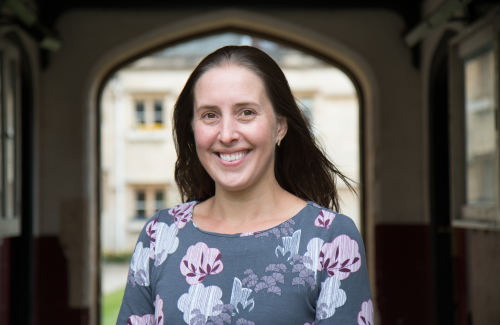Welfare and Wellbeing
At Pembroke, every student is valued, supported and empowered to thrive academically and personally.
Welfare and Wellbeing support are provided by a team who are committed to nurturing a safe, inclusive environment that promotes academic success and personal wellbeing. This begins at your transition to university and continues throughout your time.
Current students: please find welfare and wellbeing contacts and resources on the Pembroke Hub.
Our Welfare Staff

Adam is a Social Worker by background and within college he is responsible for providing support and advice to students in relation to their emotional and physical health. He provides advice to students on access to appropriate services both within the college and University, as well as universal services provided by the NHS and Social Care. Adam is able to support students in meetings with their tutors, if they think this might be helpful. He is also able to liaise with other College, University and Universal Services on behalf of students, as required.

Rebekah is a tutor in Experimental Psychology and within college she provides wellbeing support to students. She is happy to meet with students in relation to anything they are finding challenging. Simply speaking through a problem can be helpful, and if additional support is required, Rebekah can help with linking students in with other members of the College Welfare Team, University, NHS, and universal services. Rebekah is always happy to meet for a chat or a walk.

Andrew Teal has been chaplain of Pembroke for nearly 20 years. Separate to his role in the Chapel, Andrew is responsible for providing pastoral care to all members of College. He supports individuals of all faiths and none with a non-judgmental, confidential, active listening style.
Andrew will be a careful advocate if that is desired, and commitment to being involved and supportive to all is a core value of his.
At Pembroke, accessing support is viewed as a positive step. We believe that talking openly makes a big difference to managing the small and big challenges of university and personal life. We actively encourage students to engage with Welfare and Wellbeing support and aim to create a culture that promotes positive wellbeing.
If a student believes they may require extra support, we hope that they will reach out before they join us.
We are committed to supporting students from a care background, and ensuring that you receive the help you need in order to have a successful time at university.
The College’s Care-Experienced Student Lead is the Welfare Lead. Please make contact if you have any queries about your circumstances and how the College can assist you.
The University of Oxford also provides support to students who have experience of the care system.
If you are estranged from your family or have a difficult familial relationship, we are able to offer support. Please contact the Welfare Lead who will be your primary point of contact within college.
The University of Oxford also provides support to students who are studying without the support and approval of their families. It aims to ensure that you will receive the help you need to have a successful university experience.
Pembroke is keen to support students who are young carers. We understand that the transition to university life can be particularly difficult if you usually have caring responsibilities at home and are worried about those whom you care for. Please contact the Welfare Lead about support that the College may be able to provide.
No disability or long-term health condition should be a barrier to studying at Oxford. We provide support across all areas of student life, from accommodation to exam adjustments. Whatever you need, all you need to do is ask.
If you would like to discuss disability provision at Pembroke, please contact our Disability Co-ordinator, Helena Palmer, who will be more than happy to talk.

